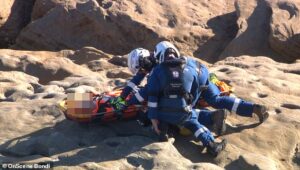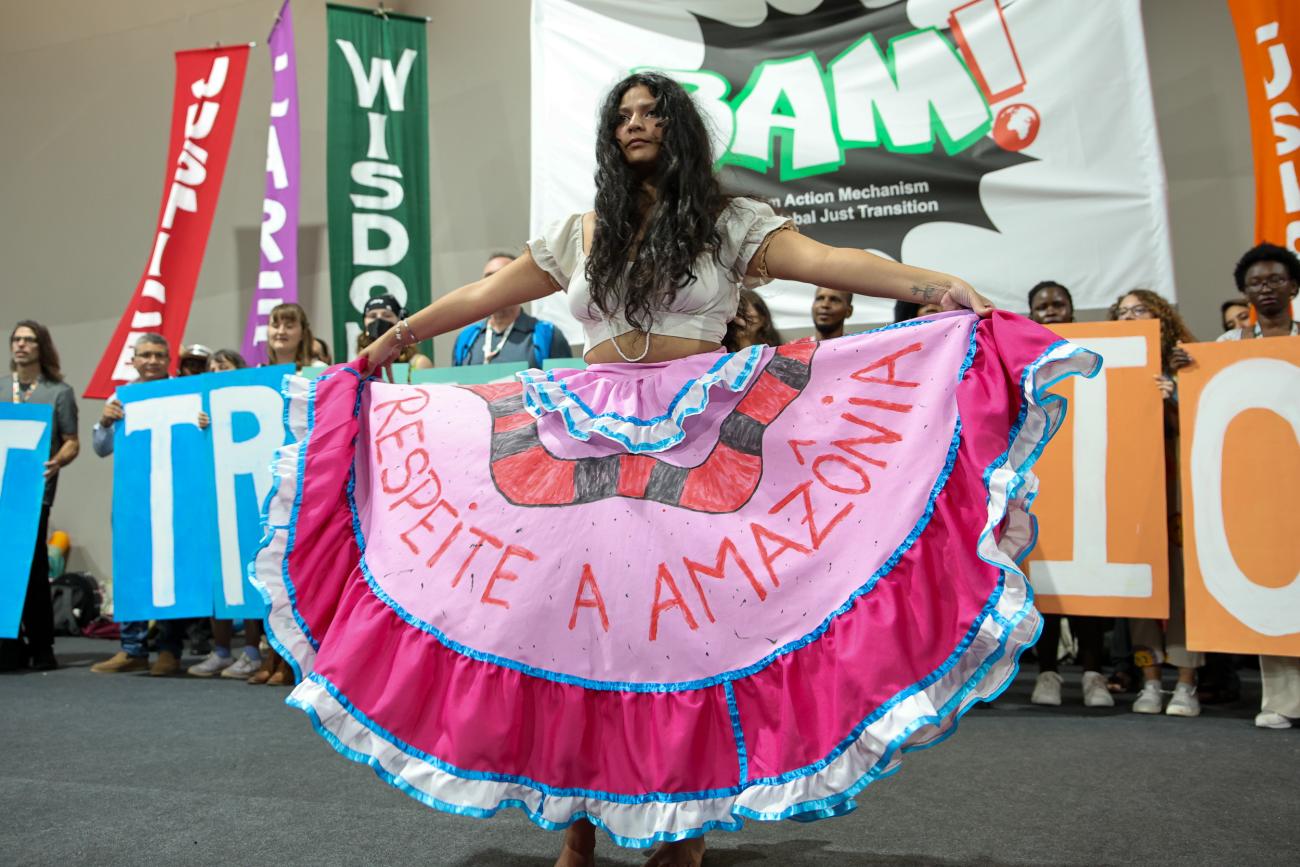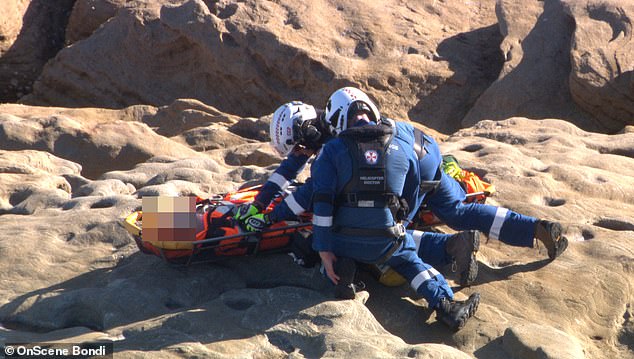As world leaders gather in Belém for COP 30, Indigenous peoples from across the Amazon have sailed thousands of kilometers to demand active participation in climate negotiations. Their message is clear: A green transition that leaves Indigenous voices out is not justice. It’s business as usual.
COP 30 takes place this year in Belém, Brazil, from November 6 to 21. Officials have promoted this year’s conference as the one with the highest Indigenous participation ever, encouraging other countries to bring their own Indigenous delegates as well. Since the end of the Bolsonaro presidency, Brazil has made headlines for elevating Indigenous voices, even establishing the Ministry of Indigenous Peoples in 2023. However, the local Indigenous communities aren’t welcoming the COP with the same enthusiasm as the government.
On paper, the conference sounds promising. But tensions have risen as residents watched the government pour money into preparations and fell a strip of rainforest to build a four-lane highway ahead of the summit. Not to mention that historically, these climate conferences have been dominated by nation-states and multinational corporations, not by the communities most affected by their decisions, and shifting away from that will take more than gentle suggestions.
In response, more than 60 Indigenous organizations set sail from the Andes in Ecuador, traveling 3,000 kilometers down the Amazon River to Belém, as the Yaku Mama Flotilla. The flotilla’s name translates to “mother of the waters” in Quechua, reflecting the belief that all parts of the environment have a mother caring for them — the mother of the rivers being the great anaconda.
Their journey is both a protest and a demand: an end to fossil fuel extraction, respect for uncontacted peoples, direct financing for community-led projects, and a commitment to climate solutions centered around ancestral knowledge.
Although Indigenous peoples represent roughly 6% of the global population, more than 32% of the world’s land is owned or governed by Indigenous peoples and local communities. Studies consistently show that ecosystems under Indigenous stewardship are healthier and more resilient than those under state or corporate control, making active Indigenous participation key to real, effective sustainability. Protecting Indigenous territories is essential to preventing climate catastrophe, yet Indigenous peoples remain largely excluded from the very conferences that decide the planet’s environmental future.
Despite shared talking points between the agenda for COP 30 and Yaku Mama’s declaration — such as “increased Indigenous participation,” “direct funding for community projects,” and “climate justice for all” — there is a deep disconnect between what COP organizers aspire to and what Indigenous leaders experience in reality. Members of the flotilla have described how difficult it is to even obtain credentials to attend these conventions.
Meanwhile, banks like JPMorgan Chase will attend COP 30 with one thing in mind: the “energy-transition conversation.” The World Economic Forum has called this transition “the biggest business opportunity of our time,” with its focus not on the environmental tipping points but on capital. Yet JPMorgan Chase remains one of the largest financiers of Amazonian fossil-fuel extraction and the very extraction that communities along the river are enduring firsthand: watching river dolphins die of mercury poisoning, facing worsening droughts, and risking their lives to defend their territories from so-called development projects.
The banks so warmly welcomed at these conferences sit at tables with investors and shareholders, discussing profit margins and “green growth.” But as the Yaku Mama declaration reminds us, the extractivism required for this transition is already creating sacrifice zones stripped for minerals and resources in the name of sustainability. The conversations taking place could not be more different. Those approaching this from a position of capital can escape the consequences of their business plans, while those who cannot are forced to build their own tables because the Western ones are already full.
It is no coincidence that those sailing in this flotilla are Indigenous. Their defense of territory is not abstract or self-serving; it is about survival. It is about caring for the lives of human and non-human relatives alike. For doing so, they face violence financed by the very institutions that claim to protect the climate while failing to examine their own supply chains built on exploitation.
This disconnect reveals itself even in language. For many Indigenous communities, humanity exists within nature, not apart from it. Their urgency is that of someone losing a loved one: a river, a forest, a home.
These conferences cost billions, yet the planet continues to burn. Perhaps the problem is focus. The Yaku Mama Flotilla approaches COP 30 with grief and guardianship, under the understanding that the Earth is a relative to protect. The global elite approach it as a marketplace to exploit. The contrast could not be starker.
Western extractivist ideals have brought us to the brink. It is time to listen — truly listen — to those who have safeguarded our ecosystems long before climate action became a slogan.
Natalia Arcos Cano is an environmental scientist and Public Voices fellow of The OpEd Project with the National Latina Institute for Reproductive Justice and the Every Page Foundation.








